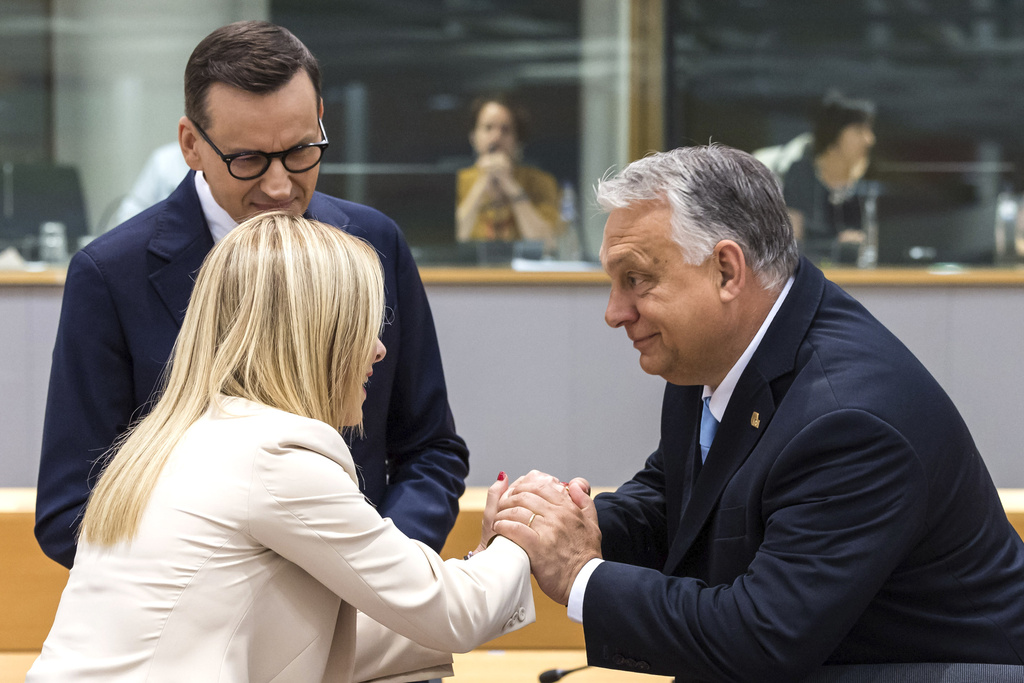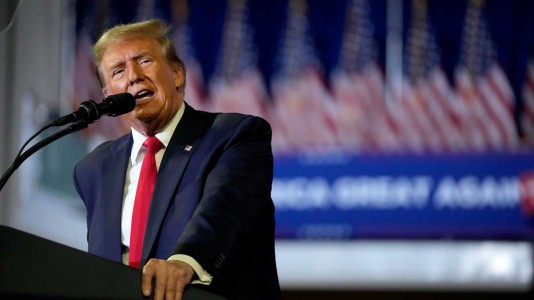Some of Europe’s leading right-wing politicians, including Italian Prime Minister Giorgia Meloni, are keen to welcome Fidesz to the European Conservatives and Reformists (ECR) camp in Strasbourg; however, Hungarian Prime Minister Viktor Orbán may have to make a major shift in policy.
Meloni, who heads the group, and former Polish Prime Minister Mateusz Morawiecki, have discussed with Orbán in recent weeks that a condition of joining the group will be that “the outspoken Hungarian prime minister” change his position on Ukraine, among other issues.
If Fidesz were to join the ECR, it could radically reshape politics in Brussels, as the nationalist, euroskeptic and anti-immigration ECR, together with the Fidesz MEPs, could become the third-largest group in the EU after the European Parliament elections in June, with greater socio-economic influence.
“I have spoken to Viktor Orbán about this, and I understand that he is considering joining the ECR. If that happens, it would give us even more capacity to act for a better Europe,” said Morawiecki, head of the Polish parliamentary delegation for Law and Justice, in an interview with Bloomberg.
The ECR could then win 80 seats in parliament if the European elections were held today, at least according to a recent Europe Elects poll. The resulting grand right-wing coalition would, however, face a challenge in coordinating positions on Ukraine, “especially given that Hungary is led by the EU’s most pro-Kremlin government, while the rest of the ECR is strongly pro-Kyiv. This is particularly true of the Law and Justice party, which currently holds the largest number of seats in the ECR bloc,” the authors of the article say.
However, Morawiecki says that more important than differences are common goals: more powers for individual countries, less EU bureaucracy, more security by curbing immigration, and less self-defeating policies in all areas.
However, this strategy also poses a risk for Meloni, a newcomer to European politics, because “Orbán, who has been in power for five terms and is the EU’s longest-serving prime minister, is not easily tamed, especially since he himself is seeking to unite the continent’s nationalist parties.”
In his latest comments to the press, the Hungarian prime minister said the agreement was almost a fait accompli, but that Fidesz’s accession before the June elections was unlikely.
“We need to join forces on many different fronts to save Europe. The ECR is open to all those who agree with us against the dominant liberal and left-wing groups that are interested in destroying the continent,” Morawiecki added.





